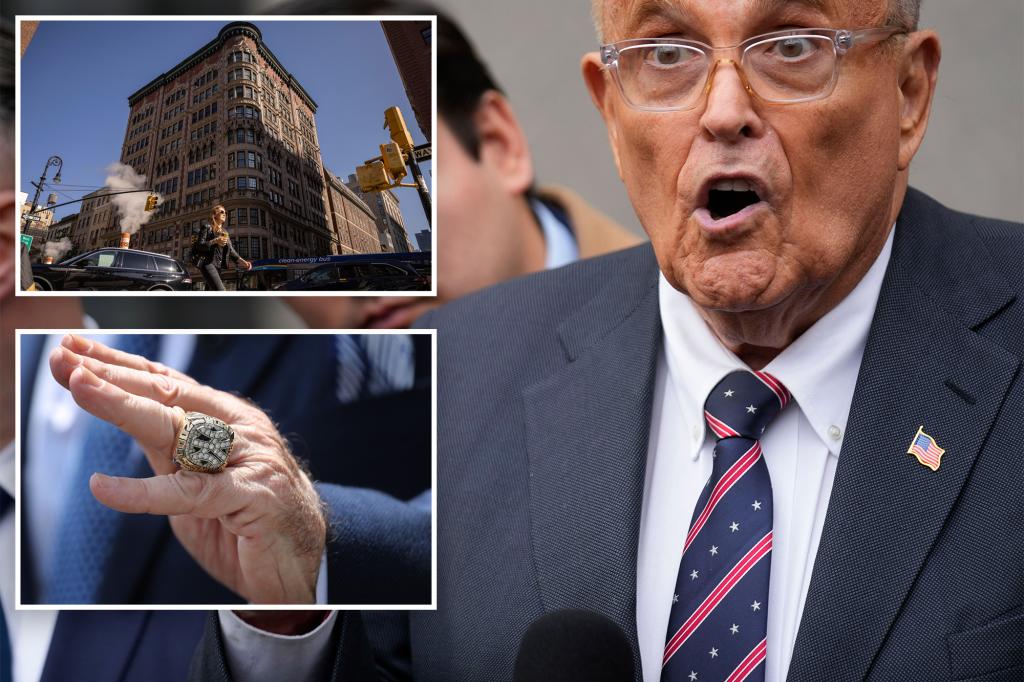Rudy Giuliani, the former mayor of New York City and one-time attorney for Donald Trump, finds himself entangled in a complex legal battle with two Georgia election poll workers. The workers, Ruby Freeman and Shaye Moss, successfully sued Giuliani for defamation, securing a substantial $148 million judgment. The case stems from Giuliani’s false accusations that the women engaged in ballot tampering during the 2020 presidential election. These unfounded claims, which included allegations of smuggling ballots in suitcases, multiple counting, and tampering with voting machines, led to a barrage of death threats against Freeman and Moss. Now, the focus shifts to Giuliani’s attempts to avoid satisfying the judgment, leading to a potential contempt of court charge.
The legal proceedings have taken a dramatic turn, with Judge Lewis J. Liman expressing clear dissatisfaction with Giuliani’s perceived lack of cooperation in providing information to the plaintiffs’ legal team. Judge Liman issued an order scheduling a contempt hearing, where Giuliani and his lawyer will need to present compelling arguments against the plaintiffs’ request for adverse inferences. These inferences, if granted, could jeopardize Giuliani’s Palm Beach, Florida, condominium, potentially leading to its seizure and sale to satisfy the defamation award. Giuliani claims the property is his primary residence and, therefore, protected, a claim that will be scrutinized by the court. The stakes are high, with Giuliani facing the prospect of losing a valuable asset in the ongoing legal battle.
The dispute centers on Giuliani’s alleged failure to comply with a court order issued in October, mandating the turnover of various assets to the poll workers. These assets include a lease to his Manhattan apartment, a Mercedes, a collection of watches and jewelry, a signed Joe DiMaggio shirt, and other baseball memorabilia. The plaintiffs’ lawyers contend that Giuliani’s non-compliance constitutes contempt of court, further escalating the legal tension. Giuliani’s lawyers, however, maintain that he will ultimately regain possession of the items on appeal, suggesting that they view the current situation as a temporary setback. This difference in perspective underscores the ongoing legal maneuvering and the high degree of uncertainty surrounding the case.
The upcoming contempt hearing follows a particularly heated exchange in a November hearing, where Giuliani, a former federal prosecutor, expressed frustration with Judge Liman, accusing him of unfair treatment. This outburst highlights the contentious nature of the legal proceedings and the deep divisions between the parties involved. The judge has indicated that he may rule on the contempt request at the hearing itself, adding to the pressure on Giuliani to provide satisfactory explanations for his alleged lack of cooperation. The hearing promises to be a crucial moment in the ongoing saga, potentially determining the fate of Giuliani’s Florida property and shaping the trajectory of the case.
The case against Giuliani carries significant implications, extending beyond the immediate financial consequences. It underscores the potential damage caused by the spread of false information, particularly in the context of elections. The death threats received by Freeman and Moss serve as a stark reminder of the real-world consequences of unsubstantiated allegations. The court’s decision in this case will send a message about the accountability individuals face for spreading false and damaging information. The $148 million award already stands as a significant rebuke of Giuliani’s actions, but the potential contempt finding and the possible loss of his property add another layer of seriousness to the proceedings.
The legal battle between Giuliani and the Georgia election workers represents a clash between the right to free speech and the responsibility to avoid defamation. Giuliani’s defense strategy likely hinges on arguing that his statements were protected political speech, even if ultimately proven false. However, the court’s finding of liability suggests that his statements crossed the line into defamation, potentially setting a precedent for future cases involving false claims about election integrity. The outcome of the contempt hearing, and the broader legal battle, will undoubtedly have lasting repercussions for Giuliani’s personal and financial well-being, while also serving as a cautionary tale about the dangers of spreading misinformation. The case highlights the vital importance of upholding the integrity of democratic processes and protecting individuals from the harmful consequences of baseless accusations.

